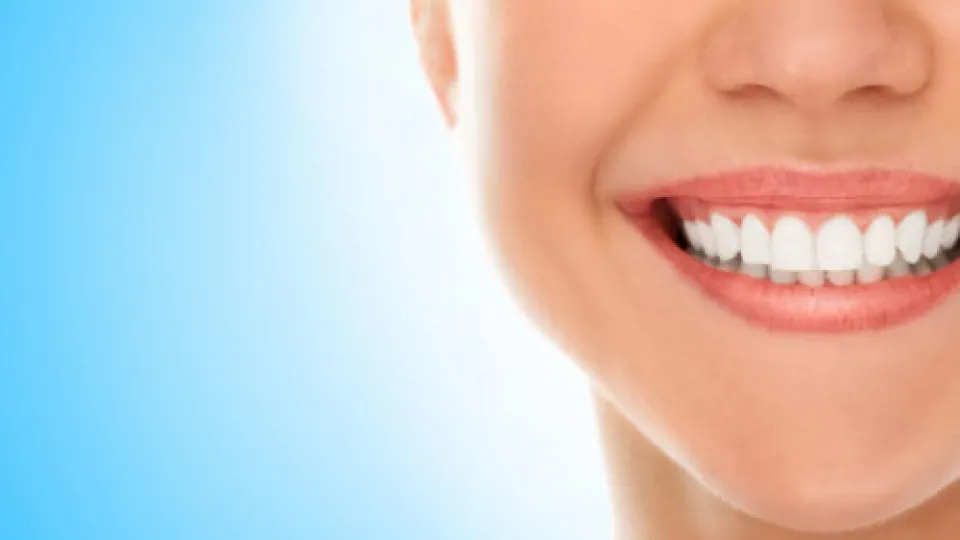
Have you ever put off going to the dentist because it's not your favorite, or when getting into bed realizing you hadn't brushed your teeth but were too lazy to get back up and go brush them? While these seem like innocent events they can lead to other health issues.
The mouth is a window into the health of the body and can show signs of nutritional deficiencies or general infection. Systemic diseases, those that affect the entire body, such as diabetes, AIDS, and Sjogren's Syndrome have the possibility of becoming apparent because of other oral problems.
How they are connected
Where you aware that your oral health is linked to your overall health? The mouth is filled with countless bacteria, up to more than 6 million, which can be linked to tooth decay and periodontal (gum) disease. Researchers have found that periodontitis (an advanced form of periodontal disease) is linked with other health problems, such as cardiovascular disease, stroke, and bacterial pneumonia.
The body's natural defenses and proper oral health care can keep these bacteria under control. However, without proper oral hygiene, bacteria can reach levels could possibly lead to oral infections, such as tooth decay and gum disease as stated above.
Protect your oral health
In order to keep yourself in good oral health it is suggested that you do the following things:
- Brush your teeth at least 2 twice a day for 2 min each using a fluoride toothpaste
- Floss daily
- Eat a healthy balanced diet and limit snacks
- Replace toothbrush every 3-4 months
- Schedule 2 dental checkup and cleanings per year, or every 6 months
- Avoid tobacco use
Benefits of Flossing
The American Dental Association (ADA) recommends cleaning between your teeth once a day.
"Interproximal cleaning, or cleaning in between the teeth, is an important part of daily oral home care," said Alissa Sanchez, Dental Hygiene Program Director at Concorde's campus in Kansas City, Mo. "It not only removes bacteria-filled plaque that can lead to decay, but it also stimulates the gingiva and helps reduce inflammation associated with gingivitis."
As Sanchez explained, bacterial colonies form on all surfaces of the teeth and must be disrupted daily to encourage a healthy oral environment.
"There are many different options for removing interproximal plaque - floss, interproximal brushes, water flossers, etc.," Sanchez said. "A dental hygienist will work with a patient to find the home care aid that works best for each patient and their specific needs and instruct them on how to properly use each aid."
Plaque not removed by brushing and cleaning between your teeth can eventually harden into a rough substance called tartar. Tartar collects along your gum line and can lead to gum disease. Once tartar forms, only your dentist can remove it.
Watch Out for Tooth Decay
Do you pay as much attention to your oral health and hygiene as you do your physical health and well being? Many of us don't, and lack of proper oral care can lead to painful tooth decay and a mouthful of unhealthy, unattractive teeth.
To make sure your teeth stay healthy well into your golden years, we've provided a guide that can help you identify and prevent tooth decay moving forward.
Types of tooth decay
Before we get into our tips for healthy teeth, we're going to take a look at the three types of tooth decay - also known as cavities or dental caries - which are breakdowns of teeth due to bacteria.
- Root decay: occurs on the surface of the roots of teeth, and is commonly seen among older adults who are more likely to have receding gums.
- Pit and fissure decay: occurs on the chewing surfaces of back teeth when bacteria find its way into the very small holes (just microns wide) that form when teeth are developing. This is the most common type of tooth decay.
- Smooth-surface decay: occurs on the outside flat surface of teeth where plaque builds up when bacteria isn't removed. This type of decay is the least severe and most easily treatable.
Conditions linked to poor oral health
There are lots of possible side effects of not taking care of your oral health. Some of the more common conditions linked to poor oral health are:
- Endocarditis: infection of the inner lining of your heart, called endocardium. You get endocarditis when bacteria and other germs from other areas of the body, such as your mouth, spread through the bloodstream and attach to damaged areas in your heart.
- Cardiovascular disease: some research indicates the heart disease, clogged arteries and stroke might be linked to the inflammation and infections that oral bacteria can lead to
- Pregnancy and birth: periodontists have been linked to premature birth and low birth weight
While some conditions are affected due to poor oral health, certain conditions can have the reverse effect and cause issues with your oral health, such as:
- Diabetes: diabetes reduces the body's resistance to infection, putting your oral health at risk. Gum disease more often in people with diabetes. Research shows that people who have gum disease have a harder time controlling their blood sugar levels, and regular periodontal care can improve your control of diabetes.
- HIV/AIDS: oral complications, such as mucosal lesions, can be common in people infected with HIV/AIDS
- Osteoporosis: periodontal bone loss and tooth loss can be linked to osteoporosis, which is a disease that causes bones to become brittle and weak. Sometimes the drugs used to treat osteoporosis can carry a small risk of damage to the bones of the jaw.
- Alzheimer's disease: Worsening of one's oral health can be seen as Alzheimer's disease progresses.
Other conditions that are possible links to poor oral health include eating disorders, rheumatoid arthritis, head and neck cancers, and Sjogren's syndrome, an immune system disorder that causes dry mouth.
The bottom line
Your mouth and body are connected and the health of one affects the other. While there's still more research needed to determine exactly how oral health and overall health are linked exactly, we do know they, in fact, are linked. It's even possible that poor oral health may also trigger other conditions that were not yet aware of.
If you have specific questions you'd like answered or are looking for a teeth checkup, Concorde is here to help. Give us a call to learn more
Take The Next Step Towards a Brighter Future
We have a Concorde representative ready to talk about what matters most to you. Get answers about start dates, curriculum, financial aid, scholarships and more!




